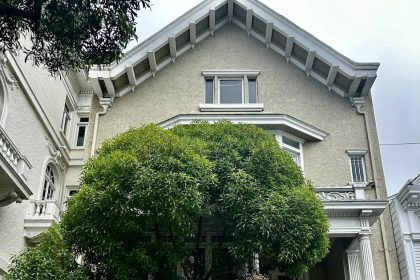The National Agency for Science and Engineering Infrastructure (NASENI) has continued to position itself as a key driver of Nigeria’s industrial and technological transformation, aligning its operations with the Renewed Hope Agenda of President Bola Ahmed Tinubu.
Established in 1992 under the Presidency as the only purpose-built agency mandated to nurture an indigenous science and engineering infrastructure base for homegrown industrialization, NASENI is today delivering on its vision of transforming research into real products that create jobs and add value to the national economy.
Under the leadership of its Executive Vice Chairman and Chief Executive Officer, Mr. Khalil Suleiman Halilu, the Agency has been repositioned to serve as Nigeria’s foremost technology transfer and commercialization institution. Halilu, who assumed office in 2023, introduced the 3Cs framework —Collaboration, Creation and Commercialization — to guide NASENI’s operations.
SPONSOR AD
Through this approach, the Agency has successfully transitioned from merely developing prototypes to producing and commercializing innovative products that are being deployed across key sectors of the economy.
In the last two years, NASENI has rolled out over 40 market-ready products including electric tricycles and motorcycles, solar power systems, lithium batteries, air conditioners, water dispensers and locally assembled laptops. These innovations demonstrate the Agency’s commitment to driving industrial growth through indigenous technology and reducing Nigeria’s dependence on imported goods.
One of NASENI’s notable achievements is the Tractor Recovery Project in partnership with the Mechanization Equipment Company of Africa (MECA). Through this project, over 375 abandoned tractors have been refurbished and returned to farms across Nigeria. The initiative, which was launched in Maiduguri and commissioned by Vice President Kashim Shettima, forms part of the National Asset Restoration Programme aimed at revitalizing agricultural mechanization and empowering local farmers.
Complementing this is the Irrigate Nigeria Project recently launched in Bauchi State, which is deploying NASENI-designed solar-powered irrigation pumps to enable year-round farming and boost food production. The project, which supports the government’s drive for food security, underscores NASENI’s role in applying technology to solve critical national challenges.
The Agency’s collaboration with TROMENT Nigeria Limited has also led to the establishment of the NASENI-TROMENT Biotechnology Factory in Abuja, the first indigenous facility for the local production of rapid diagnostic test kits for diseases such as malaria and tuberculosis. This innovation represents a major step towards self-reliance in the health sector and aligns with national efforts to reduce the importation of medical consumables. Similarly, the partnership between NASENI and IMOSE Computers is deepening Nigeria’s digital inclusion through local production of laptops and smart devices that support learning, innovation and enterprise development.
NASENI has also initiated programmes to support young inventors and entrepreneurs through the Innovate Naija Challenge and the NASENI Research Commercialization Grant Programme (NRCGP). These initiatives are designed to identify, fund and scale up homegrown ideas that can be commercialized, helping to develop a new generation of Nigerian innovators and technology-based businesses. By creating opportunities for innovation to thrive, NASENI is building the foundation for a sustainable industrial future.
In renewable energy, the Agency has upgraded its Solar Energy Plant in Karshi, Abuja, from 7.5 megawatts to 50 megawatts, making it one of the largest solar panel manufacturing facilities in West Africa. This upgrade has expanded Nigeria’s capacity for solar energy production and supports the national agenda for cleaner, more sustainable power solutions. NASENI’s solar generators, streetlamps and lithium batteries are already being deployed in rural communities to improve access to electricity and enhance local productivity.
The Agency’s collaboration with Portland Gas Limited and Kia Motors has also resulted in the establishment of major Compressed Natural Gas (CNG) conversion and training centers, producing indigenous CNG kits and training engineers to support Nigeria’s transition to greener transportation. These efforts are part of NASENI’s contribution to reducing energy costs and promoting environmental sustainability in line with the government’s energy transition policy.
Through its 11 development institutes located across the country, NASENI continues to build capacity and drive research in key areas such as engineering materials, electronics, agricultural machinery and advanced manufacturing technology. The Agricultural Machinery and Equipment Development Institute (AMEDI) in Lafia, Nasarawa State, for instance, is championing the introduction of soilless farming technologies and smart agricultural tools. Plans are already underway to establish five additional AMEDIs across the country to expand research and innovation in the agricultural sector.
NASENI’s impact also extends into ICT, education and defense. The Agency has developed drones for agricultural spraying and surveillance, supported local production of coal-based fertilizer through a partnership with Indonesia’s PT Saputra Global Harvest, and is currently constructing the Sustainable and Emerging Technologies Institute (SETI) at Bayero University, Kano, which will focus on artificial intelligence and emerging technologies. In collaboration with the Abuja Technology Village, NASENI is also attracting investors to boost local manufacturing and technology transfer.
All these initiatives underscore NASENI’s new direction as an engine room for Nigeria’s industrial growth. The Agency is no longer just a research outfit but a catalyst for economic transformation, job creation and technological self-reliance. Its partnership-driven approach ensures that the private sector, academia and government agencies work together to turn research outputs into real products that impact lives and strengthen the economy.
As Nigeria aspires to become a global player in innovation and industrialization, NASENI stands at the heart of this national ambition. Its growing portfolio of successful projects and commercialized products demonstrates what is possible when vision meets innovation and when indigenous capacity is prioritized over foreign dependency. With its renewed energy, stronger partnerships and clear focus on delivering value, NASENI is setting a new standard on how public institutions can drive industrial and technological progress.







